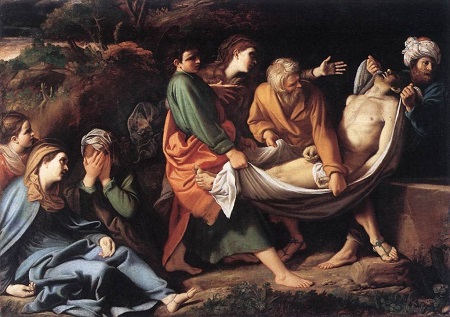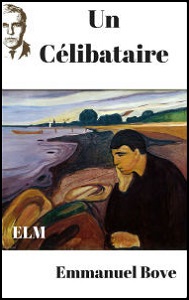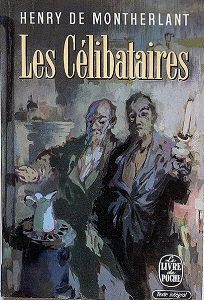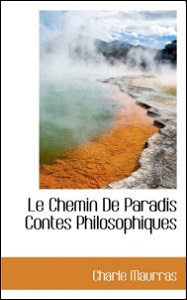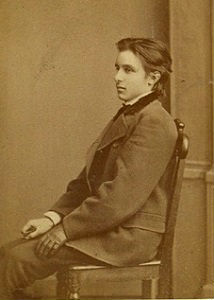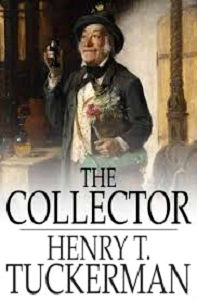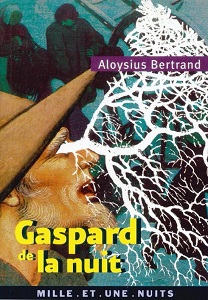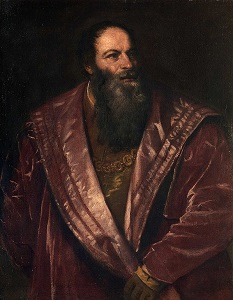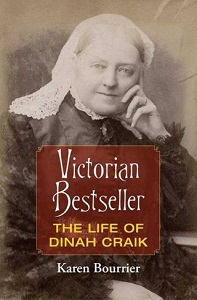De Nederlandse dichter, toneelschrijver en essayist Martinus Nijhoff werd geboren in Den Haag op 20 april 1894. Zie ook alle tags voor Martinus Nijhoff op dit blog.
Het uur U (Fragment)
De rechter zag zich staan
zonder ambtsgewaad aan:
geen toga, geen muts, geen bef:
niet dan uit rechtsbesef
en met geheven hand
deed hij zijn eed gestand:
in naam der gerechtigheid
schold hij de zonde kwijt
en had eigen schuld bekend. –
De dame die niemand kent,
het kreng, zoals men haar noemt,
zag, zonder blouse gebloemd,
zich naakt als Diana staan
in een woud: een hert kwam aan:
en toen zij zag hoe hij
knielde, knielde ook zij:
haar hand beefde, haar oog blonk
nu zij levend water dronk. –
Zo zag iedereen wat,
de één dit, de ander dat.
Maar het puur geluk dat men mocht
smaken: één ademtocht
duurde het, en werd verstoord.
Men was, als ’t ware, aan boord
van een opgegeven schip,
waar men de verdwijnende stip
naoogt der reddingsboot:
zo hoog stijgt dan de nood
dat men, naar geloof gebiedt,
olie in de golven giet:
één ondeelbaar moment
treedt rust in, rust ongekend:
het schip ligt roerloos recht:
maar reeds rolt over de plecht
een zware golf, olie-vermengd,
en hetgeen voor de zee was bestemd
komt in ’t vuur, ontploft, en het wrak
vol bezoedeld zeewater zakt
als een baggergevulde praam.
Zo zakte, achter elk raam,
in de spiegelgladde vloed
een mens zijn beeld tegemoet,
zijn eigen ontredderd beeld. –
Aan een graf
Vliegen en vlinders, kinderen en bijen,
al wat als stipjes vonkt door de natuur,
warm, blij en snel, moedertje, schoot van vuur,
daar hield je van, en zie, die bleven bij je.
Want als ik hier de diepe stilte intuur,
stijgt het zo glinsterend op, dat ik moet schreien,
en duizend lachjes, liedjes, mijmerijen,
tintelen uit het gras naar het azuur.
‘k Sta aan je graf als jij eens aan mijn wieg.
Moeder, vrees niet dat ik bij dit verzonken
handjevol as mij om het vuur bedrieg.
Ik ween, als jij toen, om de vrije vonken,
de bij, het kind, de vlinder en de vlieg,
die in het licht van puur geluk verblonken.
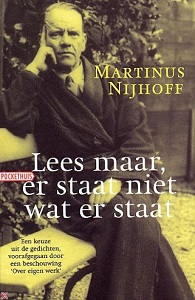
Martinus Nijhoff (20 april 1894 – 26 januari 1953)
Cover
De Nederlandse schrijver en beeldend kunstenaar Jan Cremer werd geboren in Enschede op 20 april 1940. Zie ook alle tags voor Jan Cremer op dit blog.
Uit: Ik Jan Cremer
“Ik loop al vier jaar achter mezelf aan. Ik voel me nergens thuis of overal? Stel dat ik weer in Holland kom, dan kom ik vanzelf weer in moeilijkheden. En dan wil ik weer naar het buitenland. Ik ben een verlegen zoeker. ’s Avonds, als ik op wacht sta, is het zo stil om me heen. Dan weet ik niet eens meer wie ikzelf ben. Als het zo stil is, vind ik het fijn. De wereld is zo ruim. Zouden we nu óp of in de aardbol leven?
18/8 Het is nu zeker dat ik met de ‘Constantine’ naar Marseille ga. Om troepen te verschepen. Ik zou geen J. C. zijn als er niet iets versierd wordt. Het is en blijft gevaarlijk. Als ik weg wil gá ik. En anders kom ik rustig weer terug. Ik heb dit weekend geen verlof, dus zie ik Halima misschien niet meer. Gelukkig maar, want misschien zou ik doorslaan in mijn enthousiasme. En mijn vaste stelregel: wantrouw iedereen, ook jezelf! We zijn nu al een paar dagen bezig in Aft Assad Kemach samen met de genietroepen de Poste du Commandement te herstellen. De post is in de vernieling gegooid door Algerijnse moussebilines, zelfmoordenaars, saboteurs, zoals de Japanse kamikazes. Er zijn geen doden gevallen, alleen maar gewonden. Ik moet iets anders doen dan overdag meehelpen slopen en bouwen en ’s nachts wachtlopen. Het is vlak buiten het dorp en de caïd, het dorpshoofd, had de commandant van de Genie en onze commandant gisteren uitgenodigd om te komen eten. Ik mocht mee met de Bewakingsgroep. Met de jeep zijn we er gisteravond naar toe gescheurd. We moesten op de veranda blijven zitten en elk half uur de ronde doen. We kregen ook te eten. Een schotel met een zilverachtige weke massa erop, met kleine stukjes vlees ertussen. De andere jongens hebben het weggekwakt in de struiken, maar ik heb het opgegeten: het smaakte naar vlees. Een meisje bracht het ons. Ik vroeg wat het was. ‘Slang met hondevlees.’ Gotverdomme, wát voor slang. Wát voor hond? Misselijk. Het stinkt ook altijd zo in de kasbahs. De stank van verschroeid vlees. Een weeïge geur hangt er in die huizen. Dat is de hondegeur. Voor het meisje wilde ik het niet laten merken. Ik ben niet de Hollander die erop staat boerenkool met worst en havermoutpap te eten in het buitenland. Even later kwam ze weer op de veranda met een klein schoteltje waarop een heel klein stukje bruin vlees lag in een roodachtige smurrie. Ik vroeg wat dat was: want ik had weinig zin om een drol in een plas menstruatie op te vreten, want daar zag het naar uit. Bovendien gebruiken Arabische vrouwen dat om hun minnaar te betoveren. En misschien had dit meisje wel een oogje op mij. Ze grinnikte en zei iets in het Arabisch. Ze wees op de palm van haar hand en deed me voor hoe lekker het wel was en hoe ik het op moest eten.”
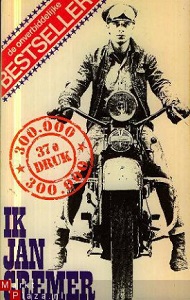
Jan Cremer (Enschede, 20 april 1940)
Cover
De Nederlandse dichter en vertaler Jean Pierre Rawie werd geboren op 20 april 1951 in Scheveningen. Zie ook alle tags voor Jean Pierre Rawie op dit blog.
Sterfbed
Mijn vader sterft; als ik zijn hand vasthoud,
voel ik de botten door zijn huid heen steken.
Ik zoek naar woorden maar hij kan niet spreken
en is bij elke ademtocht benauwd.
Dus schud ik kussens en verschik de deken,
waar hij met krachteloze hand in klauwt;
ik blijf zijn kind, al word ik eeuwen oud,
en blijf als kind voor eeuwig in gebreke.
Wij volgen éen voor éen hetzelfde pad,
en worden met dezelfde maat gemeten;
ik zie mijzelf nu in zijn bed gezeten
zoals hij bij zijn eigen vader zat:
straks is hij weg, en heeft hij nooit geweten
hoe machteloos ik hem heb liefgehad.
Dichter
Je maakt het mensen toch niet naar de zin,
en streeft dat ook niet langer na. Niet langer
is wat je schrijft gericht op een ontvanger.
Je bent je eigen einde en begin,
en leeft en sterft alleen. Geen dubbelganger
neemt straks je plaats wanneer je doodgaat in;
geen keer op keer verloren hartsvriendin
ging van iets anders dan gedichten zwanger.
Veel lijkt mislukt te zijn, maar toch, jij bent
degeen die eens zelfs in het meest banale
de waardigheid en zin heeft onderkend,
en alles in het eerste licht zag stralen.
En heel je leven zoek je dat moment
nog eenmaal zo volmaakt te achterhalen.
Kwatrijn
Wij zijn – vergrijsd en het gelaat doorgroefd –
niet dikwijls meer ten dode toe bedroefd,
alleen van tijd tot tijd een beetje treurig
omdat het allemaal niet meer zo hoeft.

Jean Pierre Rawie (Scheveningen, 20 april 1951)
De Nederlandse dichteres en schrijfster Marieke Lucas Rijneveld werd geboren in Nieuwendijk op 20 april 1991. Zie ook alle tags voor Marieke Lucas Rijneveld op dit blog.
Thuiskomen
Al die tijd voor niets gezocht, zag wel de slakken op het asfalt
Ervan uitgegaan dat zij steevast onderweg waren tot ik hoorde dat thuis geen
plek is maar een welbevinden, het lichaam niet langer een dekmantel om alles
te verschuilen wat zich van buiten naar binnen keerde, het effect veroorzaakte
als van een opengesneden appel in de koelkast die door het bruin de schijn
heeft van niet meer genuttigd te willen worden, nee zie de muren aan de binnenkant
van mijn benen, zo verplaatsbaar waardoor iedere plek een thuis wordt waar ik
me ook zal vastleggen mits de huid valt zoals een zondags pak waarin geslapen
kan worden op de bank zonder dat het op een manier verkreukelt dat er sprake is van
een ander soort vermoeidheid: ik ben wel aangekomen maar het weggaan zit in al mijn
ledematen zoals een voortvluchtige vaak degene is die stil blijft zitten als een fossiel
in de zetel bij het raam, bang voor de dag dat het rennen geen achterkant meer heeft
gebouwen plat van karton, de voeten eeuwig in de vorm van een startblok gevouwen.
Net als een slak wordt de mens geboren met een huis dat groeit totdat ze het laatste
streepje op de deurpost neerkrabbelen tussen de buurman en de hond in, weet nog de
septembermaand dat mijn broertje met een rubberhamer, toen de hazelnoten op waren, een
slakkenhuis kapotsloeg, het parelmoer aan diggelen, het laagje vernis als huidschilfers tussen
de straatstenen. Toen we de volgende dag terugkwamen zat er alleen nog een vochtplek
alsof er iemand getuft had maar wij wisten wel beter. Nu de herfst zich aandient smeer ik mijn
lichaam in met wrijfwas tegen krassen, probeer in mij het ouderlijk huis te vinden want zonder
droog ik uit, verander ik in kauwgom dat aan iedere schoenzool blijft plakken om
maar met een ander mee te kunnen reizen die nooit zijn lichaam als een plastic beschermlaagje
zal gebruiken om mij daaronder warm te houden, te beschermen tegen alles wat mij aan
zal willen raken, vette vingerafdrukken, mijn nette opvoeding etaleren. Liever een glimmend
lichaam waar op een dag het welbevinden niet langer een beurse plek is maar het klokhuis.
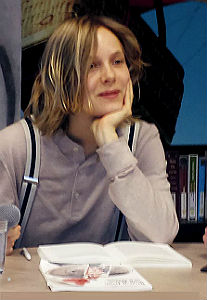
Marieke Lucas Rijneveld (Nieuwendijk, 20 april 1991)
De Britse schrijver en journalist Sebastian Faulks werd geboren op 20 april 1953 in Newbury. Zie ook alle tags voor Sebastian Faulks op dit blog.
Uit: Paris Echo
“I was taking a pee in the bathroom when I caught sight of myself in the mirror. My face looked so beautiful that I turned to look more closely, spraying the tiles round the toilet in my hurry. I shook my zib and put it back inside my boxers so I could study my face. It was like someone had drawn a faint shadow beneath the cheekbones, then put a touch of mascara on my lashes. The eyes had a depth I’d never seen before. I put my head to one side and smiled, then furrowed my brow as though I was being serious, but the eyes stayed the same – twinkling with a kind of humour and experience. This was the face of someone old beyond my years.How could it be I’d never noticed before just how beautiful I was? Not regular handsome maybe like an old-time film star and not indie blank like a modern one. More a mix of soul and sexiness. With noble bones.I flipped the glass to magnifying and back to normal. I held a hand mirror up to turn the reflection on itself, so it sat right-way-on. I backed against the wall, then went fisheye close. It made no difference. True, I’d smoked a little kif, but only a little, which was all I liked, and I’d had a Coke to keep my sugar level up (a tip from a boy in my year). I felt happy to think this person was me. No harm could come to someone who looked like that. The ways of peace and righteousness were ours. Not to mention soft-skinned girls and travel to distant places.
We stared into one another’s eyes for a few more minutes.Then he spoke.He said, ‘You got to get out, man. You gotta get out.’I felt myself nodding in agreement.Because I’d known this anyway, for quite a while. There was nothing shocking in what he said, it was more of a relief.‘Go now.’‘I will. Any day now.’We lived just outside the medina, the old town, in a whitewashed house. There was another family on the ground floor, but an outside staircase led to our front door. We had the top two floors and a roof terrace with a view towards the sea. My stepmother used to hang the washing up there, which pissed my father off. ‘How can I bring people home when they have to sit next to a row of wet shirts?’ I had nothing against my stepmother except that she was not my mother. That, and the fact that she always repeated herself. Once she ’d locked on to a piece of news or a point of view, she couldn’t let it go. ‘All our problems are caused by the Arabs of the Gulf, especially the Saudis,’ she told us one January. In September she was still saying this like something she ’d just stumbled on.In the middle of the terrace was a taifor, a kind of low table.It had a woven cloth, orange and red, and small shiny discs that reflected the sun. On it was a box of cigarettes and coloured glasses for tea. My father asked men he hoped would invest in his business to come up and admire the view while he unlocked his supply of whisky. He offered it round with a leer that made me feel sick. There were tons of places in town you could buy liquor. Some of them had only boxes of tissues or cat food in the window, but everyone knew you couldn’t run a specialist tissue shop. You only had to go a few paces in, past the Kleenex, and there were rows of Johnnie Walker and Glenmorangie above the lager and Moroccan wine.”

Sebastian Faulks (Newbury, 20 april 1953)
De Vlaamse dichter en schrijver Jozef Hugo Maria Deleu werd geboren in Roeselare op 20 april 1937. Zie ook alle tags voor Jozef Deleu op dit blog.
Lied om jou
Pluk een hand licht
aan de zon,
het wordt dag
met de herfst in de lucht
en de vlucht
van het wild.
Speel mij het spel,
het geliefde verhaal
van het kind in de zon
dat de avond beschreit
om de nacht –
en kom.
En niets zal ik vragen,
noch talen met woorden
om diepere zin;
vandaag met de zon
in de herfst en de bomen
vergeet ik – en zing.
Zwijgen
Anderhalf zwijgen
is zwijgen, ongehoord.
In mijn verlichte kamer
stamelen dof de dagen
het één en hetzelfde woord:
te slapen liggen dood
de zon horen bloeien
uit elk aardse woord
zacht en weerbarstig beminnen
zonder twijfel en daarom
zonder woord.
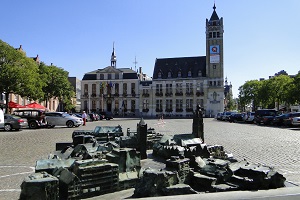
Jozef Deleu (Roeselare, 20 april 1937)
Roeselare, Grote Markt
De Amerikaanse schrijver, essayist en criticus Steven Michael Erickson werd geboren op 20 april 1950 in Los Angeles. Zie ook alle tags voor Steven Erickson op dit blog.
Uit: Our Ecstatic Days
“Later after the college professor got off the bus with his radio and the bus continued onward, I went on singing it to myself if there’s a higher light sang it to myself just as much not to forget it as anything, and inside me let it shine on me inside Kirk stopped thrashing, listening. I knew he was listening. Later, after he was born, I would ask if he remembered me singing it to him, and he said he did. Maybe he did, maybe he didn’t. But I would sing it to him before going to sleep, by the window of our apartment, while the nightwind came in off the lake. Started this journal in Tokyo, stopped when I thought I miscarried him, then started again after I got back to L.A. . . . that was around the time the lake first appeared, that mid-September three years ago after Kirk was born. Of course it was already there before that, before anyone realized it was ever going to turn into an actual lake, the center near where Hollywood Boulevard used to meet Laurel Canyon Boulevard, nothing more than a puddle the morning it first bubbled up, no one thinking anything about it until however long it was before it cut the canyon off from the rest of the city. . . . Since the city was in the middle of one of its usual droughts, a lake that appeared from nowhere and kept getting bigger ought to have been a little suspicious — but I guess that’s easy to say in retrospect. “What’s that old machinery out there in the water?” the writer down the hall asked me not that long ago, staring in the distance out his window, and I said, “Pumps from when they tried to drain it. . ” As usual Kirk was busy demolishing the guy’s apartment, sitting over in the corner pulling the tape out of a video. “Hey! ” I yelled. He stopped long enough to gauge whether this admonition was to be taken any more seriously than any of the others, before returning to the task at hand.”
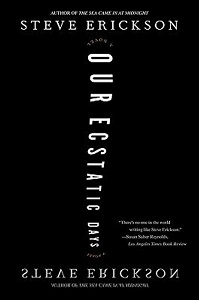
Steve Erickson (Los Angeles, 20 april 1950)
Cover
De Finse schrijver Arto Paasilinna werd geboren op 20 april 1942 in Kittilä in Lapland. Zie ook alle tags voor Arto Paasilinna op dit blog.
Uit: Helse eendjes (Vertaald door Annemarie Raas)
“Jyllänketo schatte dat er vele honderden hectaren land voor hem lagen. Aan de rand van het dennenbos, dat slechts als een donkere schim zichtbaar was, ploegden een paar trekkers voort die dampende, zwartbruine groeven achter zich lieten. Nadat de sporen waren getrokken knielde er een groep ijverig ogende mensen bij neer; die waren ongetwijfeld bezig zaailingen uit te zetten.
Jyllänketo ging op de traptreden naar de ingang van het hoofdgebouw zitten en haalde een laptop uit zijn koffer. Hij zette hem aan, en toen het beeldscherm oplichtte, begon hij te typen: ‘Turtola, dinsdag 3 juni. Rond een uur of elf vanochtend ben ik hier in het Hoge Noorden gearriveerd. Ik heb de nacht in Oulu doorgebracht. Het is een mooie dag, een graad of tien. Het leven hier lijkt rustig zijn gangetje te gaan. Op de velden worden de gebruikelijke voorjaarswerkzaamheden verricht. Ik heb nog geen lokale bewoners ontmoet.’
Op het erf voor het gebouw sjokten een paar mannen op leeftijd rond, gekleed in overalls. Ze droegen manden tjokvol met voorjaarskluifzwammen. De mannen liepen een bordes op, veegden hun laarzen af aan een laarzenborstel en gingen toen door een zijdeur naar binnen. Ze kwamen rechercheur Jyllänketo op een of andere manier bekend voor, maar hoezeer hij zijn best ook deed, hij kon niet op hun namen komen. Maar het waren beslist mannen van gewicht, dat voelde hij gewoon. Agenten die voor de geheime dienst werken hebben een goed getraind geheugen; ze moeten zich duizenden gelaatstrekken, gebaren en zonderlinge details inprenten. Maar wie kon zich nou echt alles herinneren? Om die reden waren er in de loop van de tijd lijsten, rapporten, documenten en notulen opgesteld, geschreven en verzameld. Al die informatie was zorgvuldig in mappen opgeborgen, die genummerd waren en op planken neergezet. Mappen met persoonsgegevens moesten worden geactualiseerd en indien nodig aangevuld. De orde moest worden gehandhaafd, zowel in de samenleving als in het archief. In onrustige tijden werden de kaften van de stoffige mappen opengeslagen, waarna zwarte auto’s in de donkere uren van de nacht op pad werden gestuurd om elementen die de rust in de samenleving dreigden te verstoren in de boeien te slaan.”
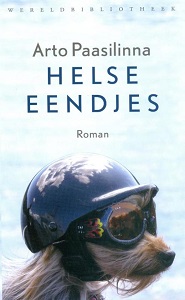
Arto Paasilinna (Kittilä, 20 april 1942)
Cover
De Franse dichter, schrijver en etholoog Michel Leiris werd geboren in Parijs op 20 april 1901. Zie ook alle tags voor Michel Leiris op dit blog.
Uit: Nights as Day, Days as Night (Vertaald door Richard Sieburth)
“JANUARY 20–21, 1925
(HALF-ASLEEP)
I see the word “bât” [packsaddle] written in capital letters while apparently hearing the strains of a violin. Then there follows, without my reading the letters this time: “convolutions . . . prismatic gloom . . . ”
“JANUARY 21–22, 1925
I set out on an excursion boat from a small river port where pirate and corsair ships of the 17th and 18th centuries are moored. Every type of vessel is represented; there is even a steamboat similar to the tugs one sees on the Seine. The flagship is huge and is made up of two hulls linked together by a single deck, an arrangement that allows smaller boats to sail through the flagship widthwise and to pass under the deck as though it were a fixed arch. The sails are capable of only one movement: they can be lowered or raised like drawbridges or like wings, according to that simple up-and-down movement to which the flight of birds used to be so schematically reduced in sketches made by designers of flying machines.
The excursion boat takes me to the ruins of the abbey of Jumièges. After a long walk through the halls and stairways, I come across my brother lying in bed. I ask him what he’s doing there. He replies that he is the director of the “Abbey Clinic,” then (the dream now extending into a half-awake revery) he explains to me the ritual of the “Tactile Exam” that is observed in the region at various prescribed dates: a number of girls, naked, their faces masked, are gathered into one of the monastery’s crypts; a young man, chosen by lot, leaves a nearby village at midnight and makes his way into the crypt blindfolded; his task is to feel up the girls until he has recognized one of them by purely tactile means, and if this girl also manages to recognize him in turn, he makes love to her. There is a similar game called “Aural Exam,” in which the method of identification involves the voice.”
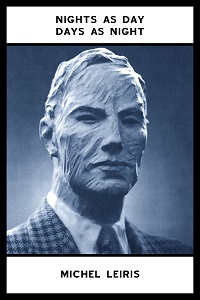
Michel Leiris (20 april 1901 – 30 september 1990)
Cover
Zie voor nog meer schrijves van de 20e april ook mijn vorige blog van vandaag.
